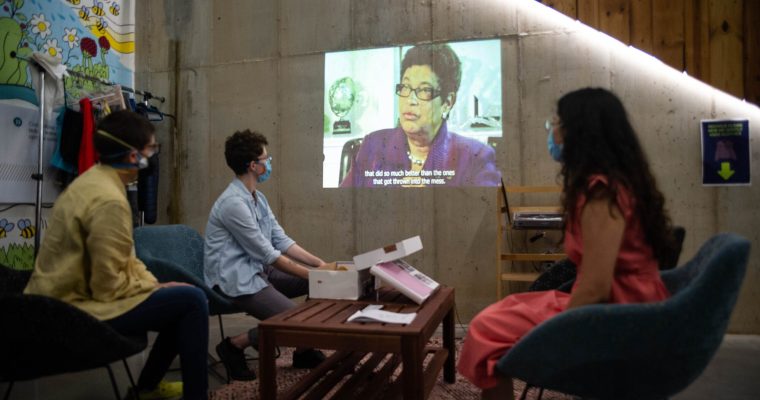My research explores the ethical and political dimensions of design and technology, especially as related to questions of democracy and justice. Rooted in pragmatist ethics and feminist theory, I critically engage emerging digital technologies—such as smart cities or artificial intelligence—in their wide-ranging and transformative effect on the future of collective and social interactions. I view design and theory as inseparable to research on technology. As such, my work falls under three broad research strategies of theory, criticism, and design-based inquiry to better understand the human-made world.
-
Values as Hypotheses
Design and technology discourses are often accompanied with implicit and explicit appeals to values. But what exactly do we mean by these values and how do they shape design practice and design artifacts?

-
Feminist Philosophic Toys
Building on the history of the Victorian ‘philosophical toy’ Feminist Philosophical Toys presents a re-imagined set of paper machines as feminist materials for designers to think with.

-
Sensing Bodies
How can data creation and visualization foreground the interdependent and reciprocal relationships between human and plant bodies? How can artistic interventions open up new possibilities and ethical orientations toward more-than-human communities and bring forth their complex entwinement with the local environment?

-
Gendered Violence on Twitter | Free Speech
Do the dominant framings of free speech work to undermine it for marginalized communities? Do moderation policies on online platforms limit participation?

-
Doing Justice to Stories
Collecting, archiving, and sharing stories has been identified as possible practices to advance social justice, especially given the low cost and accessibility of digital technologies. But is it possible that the same collective force that is gained through large archives of stories masks and even betrays stories—taking away from what is meaningful and worthwhile in the…

-
Smart Cities & Safe Mobility
Are smart cities part of the solution to the problems of communication and community within cities, poised to improving the lives of citizens? Would they work to expand modes of participation and citizenship or instead suppress communication and further distance and disintegrate communities?

-
Games for Learning
How can games engage students critically with science?

-
Collaborative Games
Digital participatory media such as collaborative games create environments that vary in their capacity for social engagement and learning. This research looks closely at such environments to tease out whether and how the design of such environments relate to the quality of social interactions mediated by them.

-
Unintended Consequences
This theoretical exploration revisits the term “unintended consequences,” drawing upon an illustrative vignette to show how it is used to dismiss vital ethical and political concerns.

-
Algorithmic Fashion
The introduction of algorithmic fashion assistants occasions the opportunity to see fashion for its substance as we interrogate algorithms’ claim to reason: surfacing both their inadequacy and oppressive potency.

-
Heart Sense
Fostering Social Connectedness Through Physiologically-Informed Design

-
Public Interest Technologies & Epistemic Injustice
How Might We Rethink Public Interest Technologies by Centering Epistemic Justice?

